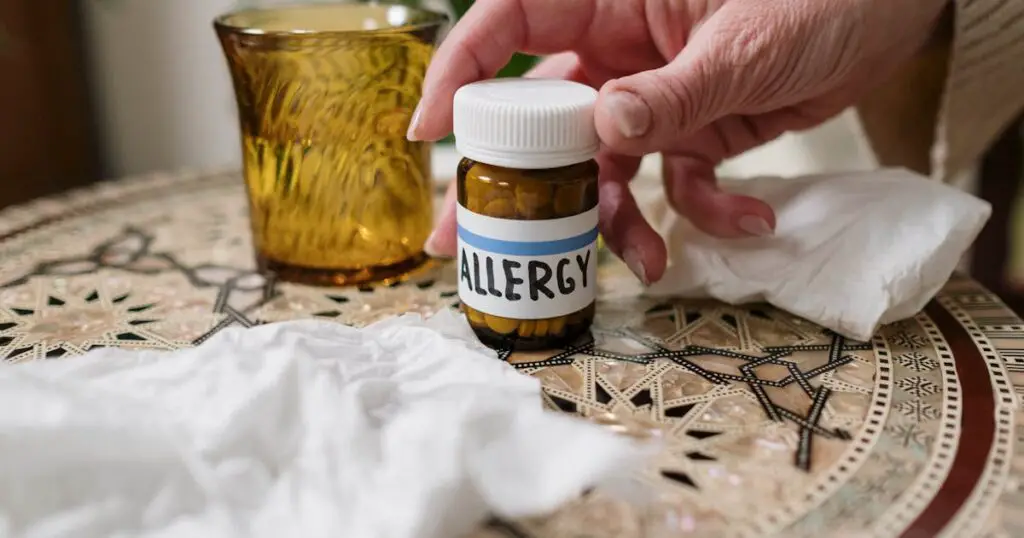key takeaway: Homeopathy offers a personalized and gentle approach to treating allergic rhinitis by addressing root causes, but consulting healthcare professionals is essential for a comprehensive treatment plan.
Homeopathy could complement traditional medical treatments by potentially reducing the frequency and intensity of allergic rhinitis symptoms, contributing to overall well-being. However, individuals should ensure their treatment choices are informed, balanced, and tailored to their specific health needs, considering both homeopathic remedies’ potential benefits and limitations in managing allergic rhinitis.

Allergic rhinitis, also known as hay fever, is a common condition affecting millions worldwide. It is an allergic reaction to substances in the air such as pollen, dust mites, and animal dander. The symptoms may include sneezing, congestion, runny nose, and itchy eyes. While most people manage their symptoms with over-the-counter medications, others turn to alternative treatments like homeopathy. But can homeopathy really cure allergic rhinitis? In this article, we will explore the effectiveness of homeopathy in treating this condition.
What is Allergic Rhinitis?
Allergic rhinitis is an inflammatory condition of the nose caused by an allergic reaction to substances in the air. It is estimated that around 10-30% of the global population is affected by this condition. Allergic rhinitis can be seasonal or perennial, depending on the type of allergen that triggers it.
Seasonal allergic rhinitis occurs during specific times of the year when certain plants release pollen into the air. This type of allergic rhinitis is commonly known as hay fever. On the other hand, perennial allergic rhinitis can occur all year round and is usually triggered by substances like dust mites, pet dander, or mold.
Types of Allergic Rhinitis:
There are two main types of allergic rhinitis: seasonal and perennial. Seasonal allergic rhinitis is triggered by allergens present during specific times of the year, while perennial allergic rhinitis is triggered by substances present all year round. Although the symptoms and triggers may differ between these two types, they both result in similar symptoms.

Some people may also experience non-allergic rhinitis, which has similar symptoms to allergic rhinitis but is not caused by an allergic reaction. Non-allergic rhinitis can be triggered by irritants such as smoke, perfumes, or changes in weather.
Triggers for Allergic Rhinitis:
Substances like pollen, dust mites, pet dander, and mold are the most common triggers for allergic rhinitis. These allergens can cause an immune reaction in the body, leading to symptoms such as sneezing, congestion, and itchy eyes. The severity of these symptoms may vary depending on the person’s sensitivity to the allergen.
In addition to environmental triggers, certain lifestyle factors can also worsen allergic rhinitis symptoms. For example, being exposed to cigarette smoke or air pollution can irritate the nasal passages and aggravate symptoms.
Complications of Allergic Rhinitis:
If left untreated, allergic rhinitis can lead to complications such as sinus infections, ear infections, and asthma symptoms. The constant inflammation in the nasal passages can also cause nasal polyps, which are non-cancerous growths that can block the sinuses and cause breathing difficulties.
Moreover, the constant discomfort and disruption to daily activities can significantly impact a person’s quality of life. It may affect their sleep, concentration, and overall well-being.
Can Homeopathy Cure Allergic Rhinitis?
There is no scientific evidence to support the claim that homeopathy can cure allergic rhinitis. However, some people believe it can relieve symptoms associated with the condition. Homeopathy is a form of alternative medicine that uses highly diluted substances to stimulate the body’s natural healing process.

Homeopathic remedies for allergic rhinitis may include plant, animal, mineral extracts, and other substances. The idea behind this treatment is that the diluted substance will trigger the body’s immune system response and help reduce symptoms.
While some people may find relief from homeopathic remedies, no scientific backing supports their effectiveness. In fact, the National Center for Complementary and Integrative Health states that there is little evidence to prove that homeopathy is an effective treatment for any medical condition.
FAQs on Homeopathy and Allergic Rhinitis
In this section, we will be delving into some of the most common inquiries and curiosities that surround our topic.
Are there any side effects of using homeopathic remedies for allergic rhinitis?
There is no evidence of significant side effects from using homeopathic remedies for allergic rhinitis. However, some people may experience adverse reactions such as headaches or stomach upset.
Can homeopathy cure other allergies besides allergic rhinitis?
There is no scientific evidence to support the claim that homeopathy can cure any type of allergy, including allergic rhinitis. It may provide relief from symptoms, but it cannot cure the underlying condition.
Is homeopathy safe to use?
The safety of homeopathy is still a subject of debate in the medical community. While some believe that it is safe and gentle, others argue that the diluted substances used in homeopathic remedies have no actual medicinal properties and may not be effective in treating any condition.
Conclusion
In conclusion, no scientific evidence supports the claim that homeopathy can cure allergic rhinitis. While it may provide relief from symptoms for some individuals, it cannot cure the underlying condition or prevent future allergies. If you are considering using homeopathic remedies for allergic rhinitis, it is essential to consult with a medical professional first and continue any prescribed medications.
It is also crucial to identify and avoid triggers for the condition to manage symptoms effectively. However, more research is needed to fully understand the effectiveness of homeopathy in treating allergic rhinitis. In the meantime, it is best to stick with scientifically proven methods of managing this condition.



Leave a Comment
You must be logged in to post a comment.